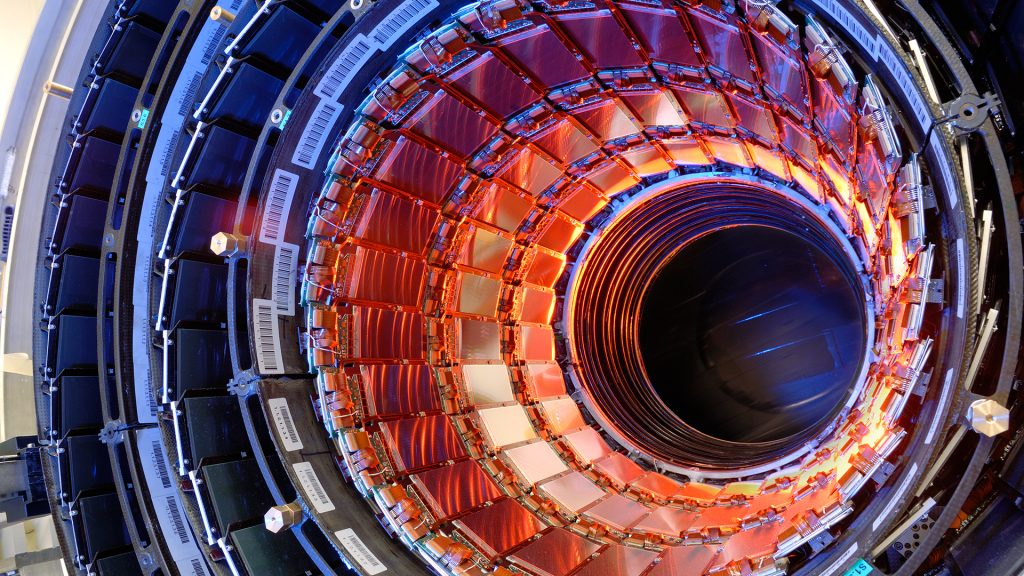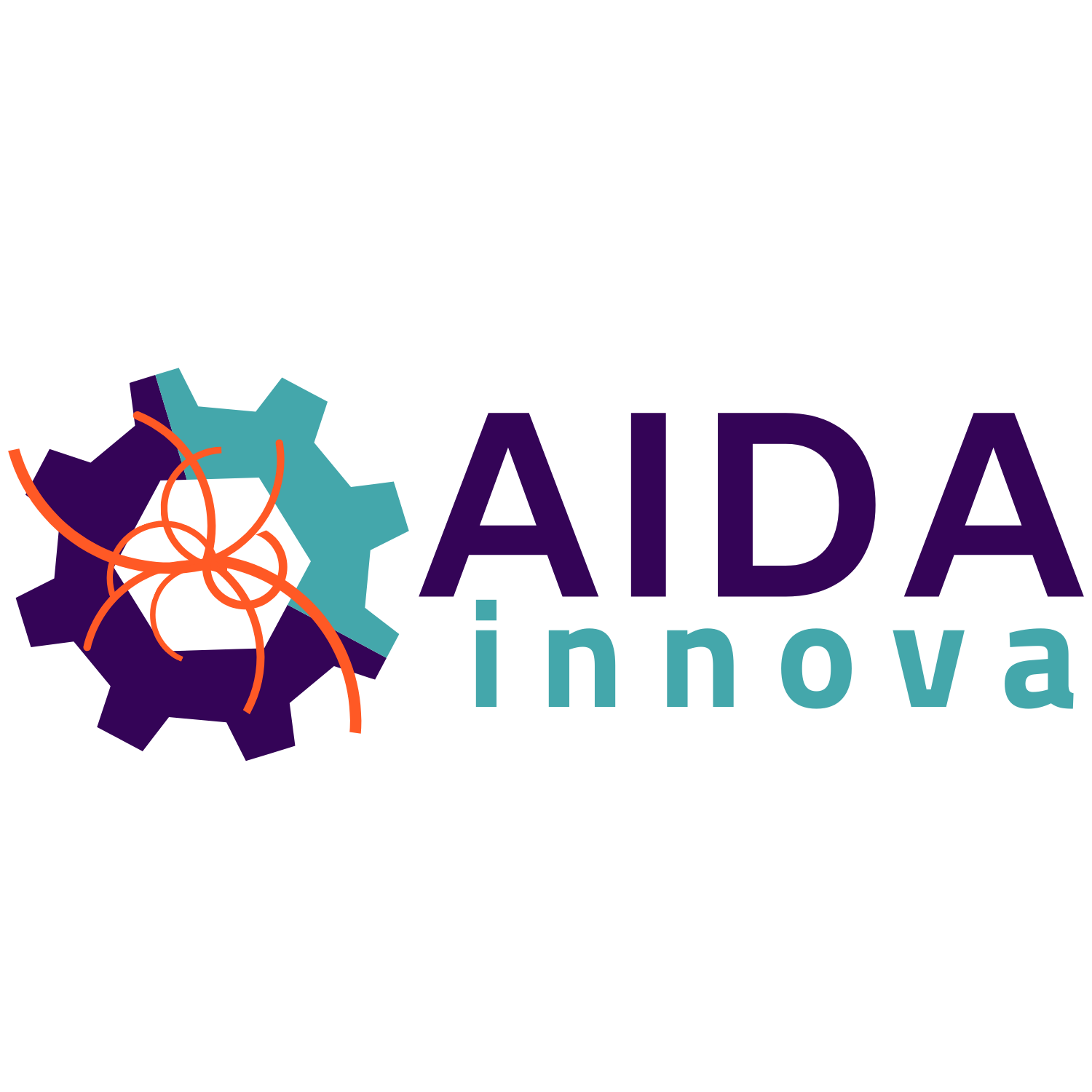
The first half of the CMS inner tracker barrel. The CMS (Compact Muon Solenoid) is one of the four experiments at the Large Hadron Collider (LHC), tasked with detecting the new particles that occur in the beam collisions at the centre of the experiment. It consists of three layers of silicon modules, which must withstand high doses of radiation and a 4T magnetic field without damage.
In November 2020, CERN announced the approval for funding of AIDAinnova, a project for the Advancement and Innovation for Detectors at Accelerators. AIDAinnova will play a fundamental role in increasing the precision of particle detection for future particle accelerators, allowing for a deeper look into natural phenomena and thus allowing particle physicists to pursue the answers to some of our Universe’s most fundamental questions. The project, approved under the Horizon 2020 funding programme for scientific and technological cooperation, will be driven by a collaboration of international institutions and laboratories, researchers and industry representatives.
AIDAinnova will work to sustainably develop a variety of ingenious detector technologies – monolithic and hybrid pixel, calorimetric, gaseous detectors, as well as cryogenic systems and other novel electronics, mechanical components and software that could revolutionise experiments at future colliders. In comparison with its predecessors AIDA and AIDA-2020, AIDAinnova introduces a strong focus on co-innovation with industry, bringing together eight industrial companies, three research and technology organisations (RTOs) and 34 academic institutions in 15 countries. Belonging to such an extensive community of multidisciplinary experts, brought together under the common goal of particle detector research and development, offers synergistic benefits to all participants. It gives companies a competitive edge through early and direct access to state-of-the art research, opens possibilities for outsourcing certain tasks to industry (e.g. prototyping), and allows the community to identify potential applications of detector technology in society, such as medical imaging, national security, autonomous driving, cooling systems, and ultralight structures for aerospace applications.
As a part of its scope, the project will help define a roadmap for detector research and development in Europe, under the auspices of ECFA. Based on the priorities for the updated European Strategy for Particle Physics, the roadmap will provide a reference framework that will help mould the future direction of development in detector technologies and collaborative practices. In the course of the project, AIDAinnova will create plenty of opportunities for young researchers to develop their educational and professional careers. About 40 PhD students are expected to contribute to the project’s activities, with training sessions and curated workshops expected for wider student networks.
“AIDAinnova will bring together the expertise from communities working on various future detector projects to maximise the use of resources. Leveraging matching funds from national laboratories, this H2020 project aims to enhance coherence and coordination in detector research and development at European level.”
Felix Sefkow, AIDAinnova Project Coordinator
AIDAinnova was also featured in the most recent issue of the EP newsletter.
Article originally published on kt.cern.
| One way that CERN cultivates close collaborations with both academia and industry is through its participation in projects co-funded by the European Commission (EC) under programmes such as Horizon 2020. AIDAinnova is part of a group of seven projects with CERN participation approved in the Research Infrastructure call in late 2020, five of which are coordinated by CERN. The five projects range from future accelerators and detectors (AIDAinnova), to radiation testing facilities, medical isotopes, and the next generation of detection and imaging technologies. Over the years, CERN has participated in 93 Horizon 2020 projects, out of which 32 were or currently are coordinated by CERN, including AIDA-2020, AIDAinnova’s predecessor and a project that brought together leading European research institutes, universities and technological centres in the field of particle detector development. |
